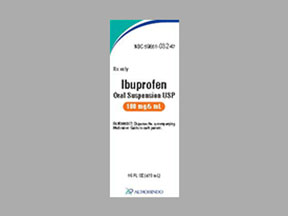
Childrens Advil Coupons & Savings Card – Discount Prices from $6.93
Brand for: Ibuprofen
My prescription
Edit
118ML of 100MG/5ML, Ibuprofen (1 Bottle)
Select pharmacy

CVS
$21.72
COUPON PRICE
Walmart
$6.93
COUPON PRICE
Albertsons
$8.72
COUPON PRICE
Walgreens
$8.81
COUPON PRICEChildrens Advil savings card
Show this card to your pharmacist
Walmart
$6.93
BIN
ID
PCN
GRP
019876
LH1F4A4925
CHIPPO
LHX
Powered by
More prescriptions for rheumatoid arthritis
More prescriptions for rheumatoid arthritis
Price history for Childrens Advil (brand) & Ibuprofen (generic)
1 Bottle, 118ML of 100MG/5ML
Average retail price for Childrens Advil
Average retail price for Ibuprofen
Average SaveHealth price for Ibuprofen
Our price history data is based on aggregated prescription data collected from participating pharmacies in America. Our prescription data updates daily to reflect the latest price changes. If you notice a missing data point, it means there wasn't sufficient data available to generate a monetary value for that date.
Over the last 12 months, the average discount price of Childrens Advil is $11.65 using the SaveHealth savings card. That's an average savings of -29.59% on Childrens Advil with our discount card.
*Retail prices are based on pharmacy claims data, and may not be accurate when we don't have enough claims.
Childrens Advil (Ibuprofen) dosage forms
Dosage Quantity Price from Per unit 118ML of 100MG/5ML 1 Bottle $6.93 $6.93 118ML of 100MG/5ML 2 Bottles $11.35 $5.67 118ML of 100MG/5ML 3 Bottles $15.78 $5.26 118ML of 100MG/5ML 4 Bottles $20.21 $5.05 118ML of 100MG/5ML 5 Bottles $24.64 $4.93
| Dosage | Quantity | Price from | Per unit |
|---|---|---|---|
| 118ML of 100MG/5ML | 1 Bottle | $6.93 | $6.93 |
| 118ML of 100MG/5ML | 2 Bottles | $11.35 | $5.67 |
| 118ML of 100MG/5ML | 3 Bottles | $15.78 | $5.26 |
| 118ML of 100MG/5ML | 4 Bottles | $20.21 | $5.05 |
| 118ML of 100MG/5ML | 5 Bottles | $24.64 | $4.93 |
Using the SaveHealth discount card, what is the price of Childrens Advil without insurance?
Using the SaveHealth discount card, the price of Childrens Advil without insurance is $6.93.
What is the price of Childrens Advil at CVS?
The price of Childrens Advil at CVS is $21.72.
What is the price of Childrens Advil at Walgreens?
The price of Childrens Advil at Walgreens is $8.81.
What is the price of Childrens Advil at Walmart?
The price of Childrens Advil at Walmart is $6.93.
